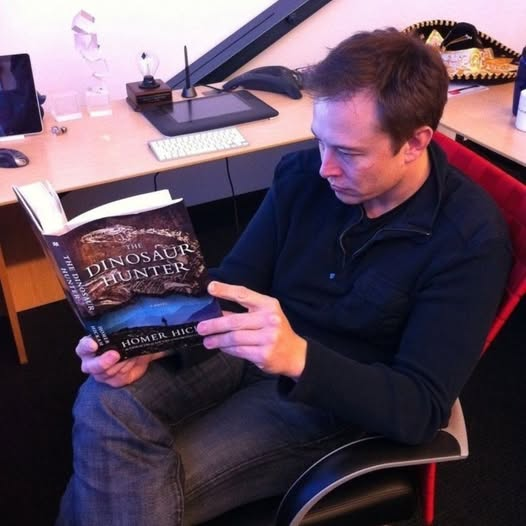
Elon Musk, the billionaire entrepreneur behind Tesla, SpaceX, and Neuralink, has built a reputation for turning science fiction into reality. His dreams of space travel, interplanetary colonization, and advanced AI often sound like they’re straight out of a futuristic novel. But what if they are?
Musk has frequently cited The Hitchhiker’s Guide to the Galaxy, Douglas Adams’ legendary sci-fi satire, as a major influence on his thinking. The book’s blend of humor, absurdity, and deep philosophical insight helped shape Musk’s perspective on the universe—and even inspired some of his real-world innovations.
A Book That Changed Everything
Musk first read The Hitchhiker’s Guide to the Galaxy as a teenager, long before he became one of the world’s most influential tech leaders. In interviews, he has described the book as one of the most profound influences on his worldview, particularly in its approach to technology, space travel, and the search for meaning.
One of the book’s central ideas—that the universe is vast, strange, and filled with unexpected possibilities—resonated deeply with Musk. Rather than seeing problems as insurmountable obstacles, the book encouraged him to approach challenges with a mix of curiosity, optimism, and humor.
SpaceX and the Hitchhiker Connection
Musk’s love for The Hitchhiker’s Guide isn’t just personal—it’s embedded in his companies, especially SpaceX. Here are some direct connections:
SpaceX’s First Spacecraft: The Dragon
Musk named SpaceX’s first spacecraft, the Dragon, after the Heart of Gold, the spaceship in Adams’ novel. In The Hitchhiker’s Guide, the Heart of Gold is powered by the “Infinite Improbability Drive,” a concept that allows it to travel through space in bizarre and unexpected ways. While SpaceX hasn’t (yet) invented an improbability drive, its achievements—like reusable rockets and private space travel—once seemed just as impossible.
The Ultimate Question
In Adams’ book, a supercomputer named Deep Thought calculates that the “Answer to the Ultimate Question of Life, the Universe, and Everything” is 42—a joke that has become legendary in sci-fi culture. Musk has referenced 42 multiple times in his work, including in Tesla software updates and SpaceX mission designs.
Don’t Panic: A Guiding Philosophy
The Hitchhiker’s Guide itself, a fictional electronic encyclopedia, has the words “Don’t Panic” written in large, friendly letters on its cover. This phrase has become one of Musk’s personal mottos. He has used it in SpaceX presentations and even put it on the dashboard screen of the Tesla Roadster that was launched into space in 2018 aboard the Falcon Heavy rocket.
The Absurdity of the Universe and Musk’s Humor
One of the reasons Musk loves The Hitchhiker’s Guide is its playful take on the absurdity of the universe. The book suggests that even the most advanced civilizations are often chaotic, unpredictable, and hilariously dysfunctional—a theme Musk seems to embrace in his own ventures.
Musk’s sense of humor, from his flamethrower business with The Boring Company to his jokes about Dogecoin and his quirky Twitter posts, reflects Adams’ influence. He understands that innovation isn’t just about solving problems—it’s also about having fun along the way.
A Vision for the Future
The biggest lesson Musk took from The Hitchhiker’s Guide is that the universe is meant to be explored. Whether it’s building a city on Mars, developing AI to expand human knowledge, or creating electric vehicles that reshape transportation, Musk’s work reflects the book’s spirit of adventure, curiosity, and limitless possibilities.
As he pushes humanity toward becoming a multi-planetary species, one thing is clear: Musk isn’t just reading about the future—he’s creating it.


